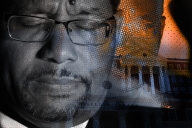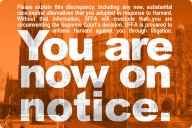You have /5 articles left.
Sign up for a free account or log in.
Asked what characteristics they most associate with Roman Catholic colleges, the No. 1 option chosen by prospective students was “conservative." No. 2 was “traditional." No. 3 was “expensive."
That was one of the findings of a survey EAB Enrollment Services did in November to try to figure out whether students were considering Catholic colleges and why or why not. The enrollment services company surveyed about 1,800 students and 800 parents about whether they were considering Catholic colleges and how they perceive the institutions. The survey sample came from the inquiry pools of the Catholic colleges EAB works with.
What the survey found is that Catholic character isn’t a deciding factor for many students. About 8 percent of students, and about 7 percent of parents, identified religious affiliation as the reason why a college is their first choice. By contrast, students were much more likely to cite institutional size, job placement and prospects, research opportunities, internships and experiential learning, and diversity of the student body as reasons for picking their college of choice.
The last factor -- diversity -- may present a perception problem for Catholic universities. Many Catholic institutions do have racially diverse student populations. But when asked to select which characteristics they least associate with Catholic colleges, the top three options chosen by prospective students were "diverse" (selected by 34.2 percent of respondents), "affordable" (31.1 percent) and "liberal" (30.4 percent).
Slightly less than a third (32.9 percent) of students who responded to the survey identified as Catholic. Another 36.4 percent identified as Christian, 5.7 percent identified as having another religious affiliation and 28.1 percent chose no religious preference or affiliation (students could choose more than one option). As for the parents in the survey, 38.4 percent identified as Catholic, 41.2 percent as Christian, 6.9 percent as another affiliation and 19.4 percent as having no preference or affiliation.
Over all, across all religious groups, EAB’s survey found that 44.2 percent of the students said they were interested in attending a Catholic college, and a similar percentage of parents, 43.6 percent, said they were interested in their children attending a Catholic college.
“It is pretty high,” said Pam Royall, the head of research at EAB. “But what’s interesting is they’re not saying, 'I want to go there because it’s a Catholic school.' They’re going there because it has these other things that they value.”
“The positive takeaway is there are actionable recommendations for Catholic institutions, and that is to emphasize their career relevance, the life-shaping opportunities that exist for students and how students study in a values-centric environment. Those are things that will resonate.”
In addition, Royall said, “there’s an overwhelming demand for affordability messaging. They need to convince people that it can be an affordable option for them.”
EAB’s finding that students aren’t driven primarily by religious affiliation in choosing a college resonates with findings from the 2016 national CIRP Freshman Survey, conducted by the Higher Education Research Institute at the University of California, Los Angeles. That survey found that 9.1 percent of incoming freshmen at all baccalaureate universities said the religious orientation or affiliation of their college was a very important factor for them in choosing their college. Among students attending Catholic colleges, the figure was 20.4 percent
Royall said that EAB’s research -- which was presented earlier this month at the Association of Catholic Colleges and Universities conference in Washington -- was prompted by reports from some of the Catholic colleges it works with of falling application numbers. While the EAB data do not include institution-specific data, it's worth noting that the Catholic college universe is large and spans institutions of various sizes and levels of selectivity. Some Catholic institutions have national reputations and are highly competitive in admissions, while others are not.
Catholic colleges aren't immune to the enrollment challenges facing private colleges overall, particularly in the Northeast and other parts of the country where there has been a decline in the traditional college-aged population. And EAB cited research from Georgetown University’s Center for Applied Research in the Apostolate highlighting special demographic challenges for Catholic colleges that stretch all the way down the pipeline to infanthood: the CARA data show a steady decrease in baptisms and in the number of students enrolled in Catholic high schools. CARA reports that there were 577,277 students enrolled in Catholic high schools in the U.S. in 2017, compared to 611,723 in 2010, about a 6 percent decrease.
Another challenge for Catholic colleges identified by EAB is a change to how the College Board asks students taking the SAT or PSAT about their religious affiliation. Starting in August 2017, the College Board changed the question from “Indicate your religious preference or affiliation” to “Are you interested in religious colleges or religiously affiliated campus clubs/activities? If yes, select a religion below.”
Because of that change, “it is becoming more and more difficult to identify in the college-bound population who is a Catholic,” said Dick Whiteside, dean for strategic enrollment management at EAB.
One piece of good news for Catholic colleges is that church scandals don’t seem to weigh heavily on the minds of many prospective students and their parents. About 8 percent of students in the EAB survey and 6 percent of parents chose "scandal" as a characteristic they most identified with Catholic colleges, far lower than the percentages who chose characteristics like "conservative," "traditional" and "expensive" (and, for that matter, "academic").
A full list of the characteristics students and parents in the survey identified as being most associated with Catholic colleges is below. Students and parents could choose up to five characteristics from the list. For parents, "academic" was the top choice, followed by "expensive" and "conservative."
Question: What characteristics do you associate most with Catholic schools?
| Parents | Students | |
|
Academic |
49.8% |
36.3% |
|
Expensive |
40.3% |
37.7% |
|
Conservative |
36.4% |
43.7% |
|
Traditional |
33.1% |
42.6% |
|
Clergy |
21.5% |
28.7% |
|
Selective |
18.1% |
20.8% |
|
Small |
17.3% |
26.3% |
|
Safe |
17.0% |
18.2% |
|
Teaching excellence |
14.9% |
6.9% |
|
Affordable |
11.5% |
10.2% |
|
Welcoming |
11.5% |
13.6% |
|
Prestigious |
10.6% |
17.3% |
|
Athletics |
10.3% |
9.3% |
|
Good value |
9.1% |
11.0% |
|
Personal |
8.7% |
10.1% |
|
Competitive |
8.4% |
8.5% |
|
Career-oriented |
7.8% |
7.5% |
|
Other |
7.5% |
4.2% |
|
Isolated |
7.0% |
19.5% |
|
Scandal |
6.4% |
7.8% |
|
Diverse |
5.1% |
7.8% |
|
Well-known |
4.5% |
6.0% |
|
Liberal |
4.1% |
5.0% |
|
Difficult |
3.9% |
6.2% |
|
Suburban |
3.5% |
3.2% |
|
Global |
3.0% |
2.6% |
|
Unsafe |
2.6% |
1.1% |
|
Innovative |
2.5% |
2.8% |
|
Stressful |
2.5% |
6.1% |
|
Urban |
2.5% |
2.8% |
|
Fun |
1.6% |
6.3% |
|
Big |
1.3% |
3.9% |
|
Rural |
1.3% |
5.1% |
|
Unique |
1.3% |
4.3% |
|
Entrepreneurial |
0.9% |
0.8% |
|
Easy |
0.0% |
3.0% |
Source: EAB Enrollment Services








